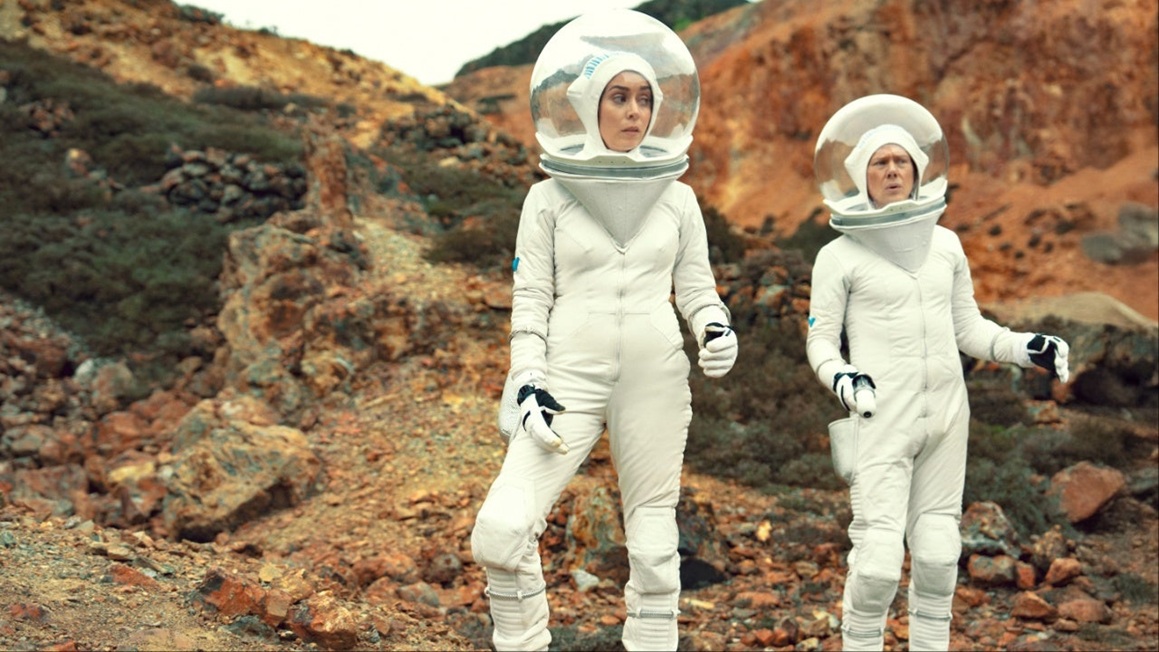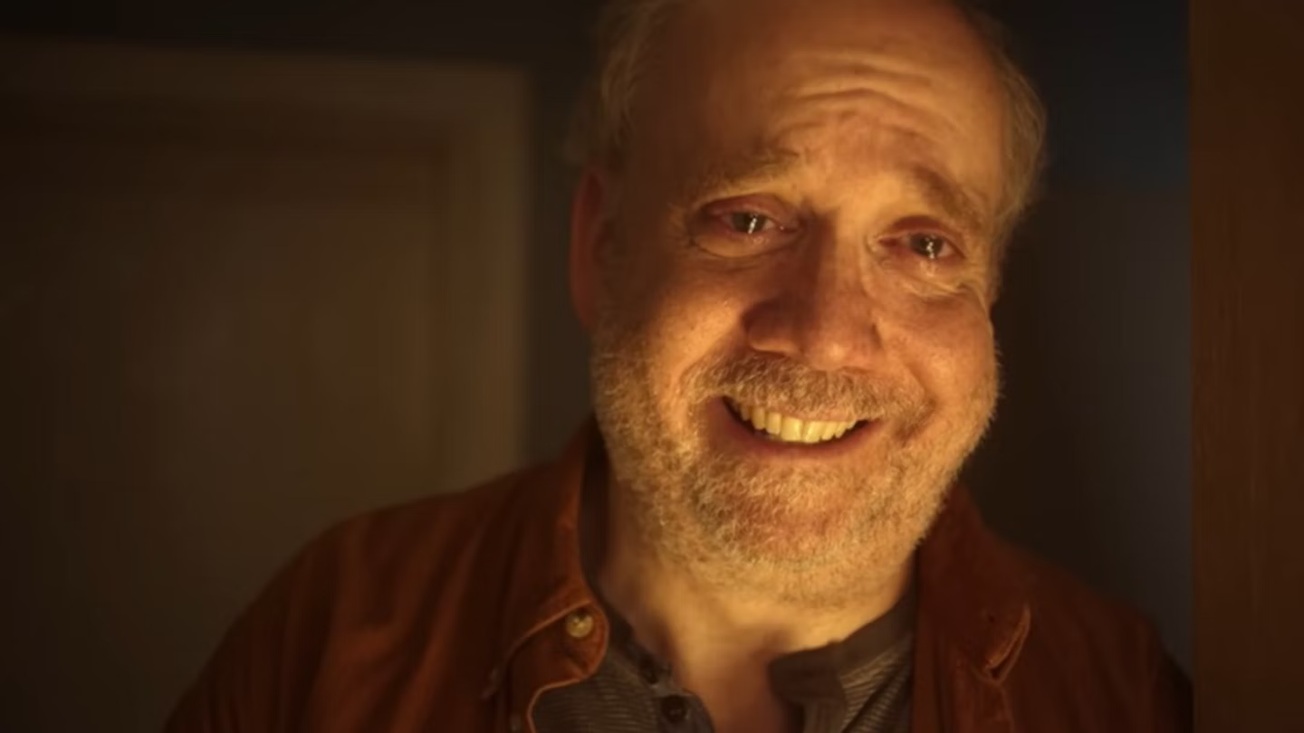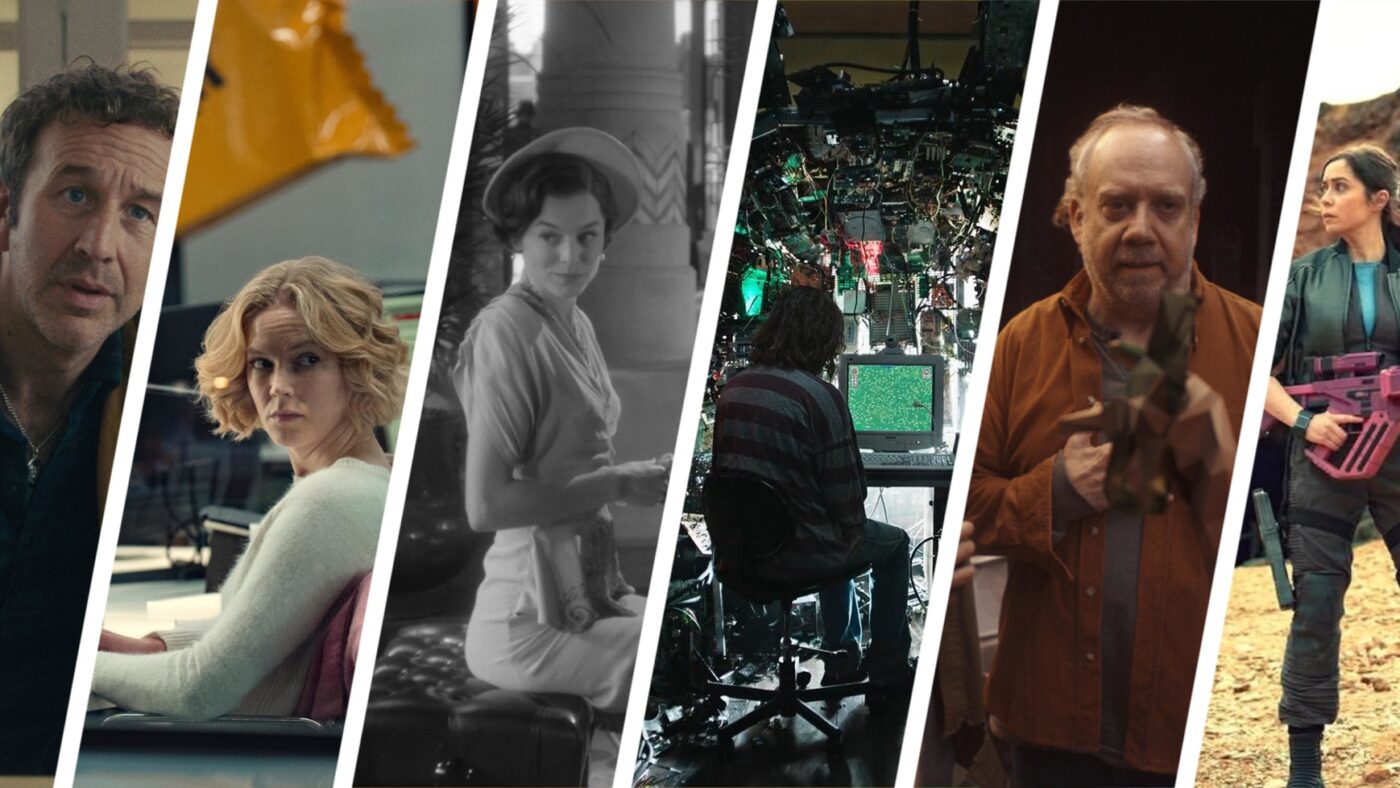A Season that is Neither a Reinvention nor a Rehash
Summary
Black Mirror season seven explores familiar anxieties around technology and identity, balancing nostalgia with fresh insights. Though uneven, standout episodes like “Eulogy” and “Bête Noire” prove the show still offers meaningful emotional depth.
Overall
-
Plot
-
Narrative
-
Acting
-
Characterization
-
Direction
-
Pacing
Ever since its beginnings, Black Mirror has held a curious place in the world of television. By mixing speculative horrors with stories rooted in poignant human dilemmas, it set itself apart from the standard sci-fi anthology. With season seven now streaming on Netflix, the series faces a distinct challenge: can it still unsettle or surprise its audience, or has the world caught up to its once-startling visions? With technology anxieties now embedded into everyday reality, the latest episodes must balance nostalgia for what once shocked viewers with a need for new stories. The result is a season that sometimes finds fresh insight but often looks back more than it looks forward. Our review of Black Mirror season 7 analyzes how it compares to previous seasons and whether it makes meaningful additions to the mythos.
From the start, Black Mirror stood out for its willingness to lean into discomfort. Its early episodes did more than predict a digitally saturated future; they forced viewers to reconsider their relationship with technology and society. Stories like “The National Anthem” or “San Junipero” did more than entertain—they unsettled and inspired debate. Season seven steps out onto familiar terrain and feels the weight of its own history. The challenge is clear: how do you surprise an audience that’s already living in the aftermath of your earliest warnings?
The opener, “Common People,” shows the show’s skill for darkly plausible dystopia. Amanda and Mike are thrust into a nightmare of medical technology twisted for profit. After Amanda survives a brain tumor with the help of a neural implant, she finds her consciousness invaded by endless, jarring advertisements, each one tailored and sold to the highest bidder. Instead of offering relief, medical technology becomes an assault—a relentless series of intrusions that turn recovery into a source of profit. The critique is sharp, especially for viewers familiar with the American system of healthcare, where life-saving advances often come down to economic privilege. The episode burrows into issues of autonomy, exploitation, and the commodification of human experience by capital, offering little comfort along the way.

Mike’s attempts to shield Amanda from these intrusions drive much of the emotional tension in Common People. But the episode quickly becomes unyielding in its pessimism. Rather than balancing moments of horror with glimmers of hope or nuance, it rushes headfirst into despair. The relentless tone provides a powerful indictment, but risks exhausting the viewer without offering space to reflect. This is a concern that echoes throughout the season: sometimes, the stories hammer home their points so hard that complexity gets lost in the noise.
In contrast, “Hotel Reverie” aims for wistful nostalgia, echoing the beloved San Junipero. This time, the story plays out in a recreated black-and-white film, as artificial intelligence technology brings a classic Hollywood movie back to life. Issa Rae shares the screen with Emma Corrin’s digitized, deceased celebrity. As the lines between real and simulated identities blur, the episode digs into current debates around AI, digital resurrection, and ownership in the entertainment industry. Awkwafina is on hand as a tech executive, her presence folding issues of media control and technological overreach into the tale. Visually, the homage to classic cinema is stylish and evocative, and at first blush, the nostalgia feels earned.
But while the concept is promising, Hotel Reverie struggles where it matters most—emotional connection. The romantic tension that made San Junipero so memorable is absent, replaced by a relationship that never feels genuine. The episode’s humor lands awkwardly, and its beautiful style can’t quite make up for a storyline that treads old ground. Instead of breaking new emotional or narrative territory, it becomes an exercise in remembering what made previous installments successful. The reliance on visual flair and familiar beats underlines the season’s struggle to find something that feels truly daring.

That thread carries through into “USS Callister: Into Infinity,” the long-awaited sequel to the much-lauded season four entry. Where the original blended tribute, suspense, and pointed commentary on power and abuse within virtual worlds, this new outing expands into a sprawling video game universe. The production values soar, giving the episode a sense of event-television, but the narrative stakes feel reduced. While returning characters bring a sense of continuity and fun, the story veers toward comedy and spectacle, losing much of the sharpness and tension that once defined it. The satire softens, replaced by playful riffs on genre conventions, suggesting a show more interested in pleasing fans than prodding them out of their comfort zones.
A different energy pulses through “Plaything,” a lighter episode starring Peter Capaldi as a quirky electronics enthusiast tangled up with a troupe of tiny virtual creatures determined to cross into reality. It’s an engaging premise—one that speaks to the porous boundary between virtual reality and physical spaces, a favorite Black Mirror theme. But here, style and whimsy take priority over depth. The playfulness is appreciated, a brief change from the unrelenting bleakness elsewhere, yet it’s hard to shake the feeling that the story never digs beneath the surface. The episode charms as spectacle, but leaves little to linger over when the credits roll.
Psychological complexity returns to the forefront with “Bête Noire,” a quieter, more contemplative tale about Maria, a confectioner caught in the mysterious workings of the “Mandela Effect.” As her memories diverge from those of everyone around her, Maria is pulled into a spiral of doubt and paranoia. The episode’s speculative premise—about the unreliability of memory and the prospect of corporations shaping reality itself—is one of the season’s more resonant ideas. Tension builds as Maria struggles to reckon with versions of her own past, the narrative teasing out the fragile relationship between identity and collective memory. Yet, the payoff is less satisfying than the setup. The solution arrives too neatly, buttoning up the ambiguity that made the story compelling in the first place.
Amid the season’s experiments and retreads, “Eulogy” stands out as its most affecting episode. Paul Giamatti, as Phillip, brings deep pathos to a story about grief, remembrance, and the ways technology might help—or hinder—the healing process. Phillip uses a digital recreation system that transforms photographs into immersive memories, letting him relive moments with a lost lover. Rather than building toward shocks, the narrative unfolds with quiet, human insight, capturing the sad joy of remembering while showing how even our most cherished recollections can be quietly edited by the technology we use. Like San Junipero, it offers a rare thread of hope, pushing beyond dystopian tropes to suggest technology’s power for connection as well as harm.

Throughout season seven, threads repeat: the corrupting influence of unchecked capitalism, the dangers of memory manipulation, the blurred line between digital fantasy and lived experience. These are potent subjects drawn from the broader landscape of speculative fiction, even if they have become familiar. The episodes circle these themes, but often stop short of pushing them in new directions. There’s a sense of caution, as if the show hesitates to abandon its well-worn devices even as the larger world hurtles past them. Where once Black Mirror felt prophetic, now it finds itself competing with the daily news, where tech scandals and digital absurdities have become standard fare.
It’s not just a matter of the world catching up. In places, the anthology’s famed structure—standalone stories, each tackling a different ethical dilemma—feels limiting in an era where serialized, interconnected narratives dominate. Without something truly novel, the risk is that the format itself, once so groundbreaking, starts to feel routine. And when each new episode echoes anxieties we encounter daily, Black Mirror struggles to reclaim the ability to disturb or astonish.
Yet, moments of promise remain. Episodes like Eulogy and Bête Noire prove that there is more to explore at the intersection of technology and emotion. When the show trusts its actors and its audience enough to slow down, complexity emerges. In those times, the stories are not just about technological nightmares, but about the impossibility of holding onto truth, or the bittersweet task of cherishing memories that technology can never quite replicate.
Our review of Black Mirror season 7 posits that part of what allows these moments to work is the show’s commitment to production detail. Each episode remains visually distinctive, whether it’s the faded glamour of Hotel Reverie or the cold, industrial palette of Common People. The use of color, sound, and set design creates immersive backdrops that amplify themes and draw viewers in—reminding us that when the storytelling rises to match the visual ambition, Black Mirror can still enthrall.
The acting also plays a crucial role. Whether it’s Capaldi’s oddball humor or Giamatti’s wounded tenderness, performances bring vital nuance to stories that might otherwise collapse under the weight of their big ideas. These characters—struggling with grief, memory, exploitation—feel grounded, real, and complex, making the season’s best moments resonate far beyond their speculative premises.
Still, even as these episodes shine, the broader pattern is harder to ignore. Too often, the series falls back on heavy-handed messaging or ends its stories with a flourish rather than a real conclusion. The tension between wanting to innovate and feeling loyal to past successes is everywhere. For longtime fans, this is both a reassurance and a frustration—a show that is unmistakably itself, but sometimes unsure of what it wants to become next.
The seventh season of Black Mirror ultimately becomes a reflection of its own legacy. It offers a patchwork of innovation and repetition—one step forward, one step back. On the one hand, there is reassurance in its familiar cautionary tales about digital capitalism, dystopia, virtual reality, and the slippery nature of identity. On the other, there’s a nagging sense that the world has absorbed these lessons so thoroughly that the show must dig deeper, ask harder questions, or risk fading into redundancy.
For creator Charlie Brooker and his team, the future carries both promise and pressure. As technology continues to outpace cultural reckoning, the need for smart, sensitive storytelling about our digital lives has never been greater. The next great leap for Black Mirror may be to trust ambiguity and discomfort, rather than simply escalating the scale of its nightmares or relying on past formulas. If it can do that—if it can take story risks as bold as those in its earliest seasons—it might recapture something of the anticipation and insight that once defined it.
For viewers, season seven offers a mirror not just to technological fears, but to the challenges of holding onto originality in a landscape crowded with anxiety and noise. Its strongest stories linger not because they outpace the headlines, but because they touch the complex ways technology reshapes love, grief, memory, and hope. These moments, quiet and carefully drawn, suggest a path forward: one where innovation doesn’t mean louder shocks, but deeper understanding.
In the fast-moving world of speculative television, standing still is not an option. Our review Black Mirror season 7 concludes that it is neither a full reinvention nor a simple retread. Instead, it’s something more tentative—a series pausing to consider what it means to be both a product of its time and a shaper of cultural thought. It is imperfect, but honest in its ambition, and punctuated by reminders of what made it vital in the first place.
As the season closes, the challenge is clear. For Brooker and his creative team, and for anyone watching, the question remains: can the show find not only new worlds to imagine, but new ways to make us feel? The answer may take more than another season to unfold, but the glimmers of emotional truth and intellectual daring in season seven suggest that, given the chance, Black Mirror still has deeper stories to tell.








Leave a Reply